How do we feed the world in the face of global population growth, changing demographics and climate change?
November 21, 2022
This post is written by Prof Andy Salter While the implications of, and solutions to, climate change, were discussed at COP27, two major global demographic landmarks were reached. The global population reached 8 billion and the population of India now matches that of China. These figures highlight the multifactorial challenges we face in ensuring adequate …
Improving the drought tolerance of pearl millet
November 14, 2022
Today at COP27 the focus of discussions is on water. Ensuring agricultural crops are resilient to drought, especially in the face of climate change is a huge undertaking but extremely important. Our researchers are investigating ways to make pearl millet more drought tolerant and ensure nutrient uptake. Pearl millet is a key crop that contributes significantly …
How should uncertainty in spatial information be communicated?
November 12, 2022
This post is written by Dr Christopher Chagumaira with contributions from Prof Murray Lark. Many and varied people have to make decisions about environmental management, be they farmers, policy-makers or managers, and spatial information about environmental variables (e.g., soil properties) is essential for this task. Within the Future Food Beacon, the GeoNutrition project is concerned …
Soils and decarbonisation: What future for agriculture?
November 11, 2022
It is decarbonization day at COP27 today. One of the ways to reduce carbon is capturing it in the soil. Soils are hugely important for our futures here on this planet. But how do soils capture carbon? And how can we develop agricultural practices that better support carbon sequestration in soils? In this post, Malcolm …
Cocoa fermentations and chocolate flavours
November 8, 2022
During the first week of July, a team of researchers from the Future Food Beacon travelled down to London to join the Royal Society Summer Science festival. After a competitive selection process, endless organising, liaising with external suppliers, and sourcing cocoa saplings, we were finally ready to share our awesome research on cocoa fermentations with …
Our technology platforms: Molecular Phenomics
October 24, 2022
The Molecular Phenomics Platform (MPP) was successfully commissioned in autumn 2020, and now resides within the analytical suite of the newly refurbished North Lab at Sutton Bonington. The LCMS system, consisting of a UHPLC front end and high-resolution Quadrupole-Time of Flight tandem mass spectrometer, can resolve thousands of chemical compounds in a single analytical run, across a …
Our Future Food Director’s first thoughts
October 19, 2022
This post is written by Andrew Salter. It has been a very strange start to the autumn term for me. For over 30 years, this time of year has been associated with preparing for teaching in the forthcoming semester. Instead, while I watch my colleagues going through this process, I am trying to get to …
Food Systems in Small Islands and Developing States conference
October 17, 2022
This post is written by Dr Chin Chiew Foan, Associate Professor in Plant Biology, based at the University of Nottingham Malaysia. The Food Systems in Small Islands and Developing States conference 2022 (FSSIDS 2022) was held at The Everly Putrajaya Hotel, Kuala Lumpur, Malaysia from 7-9 September 2022. There were more than 50 participants from 10 countries …
Crack(er)ed it! Food Science students win Ecotrophelia UK finals
October 11, 2022
Megan Holden, Katy Tolson, Laura Hill and Kieran Spouge were the winning team from UoN at the UK Ecotrephelia competition finals. Ecotrephelia is a competition for the creation of eco-innovative food products. The team are final year Food Science & Nutrition (Megan, Katy and Laura) and Food Science (Kieran) students. We spoke to them about the competition, …



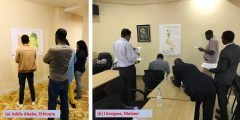
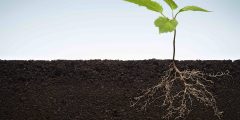
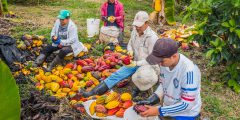
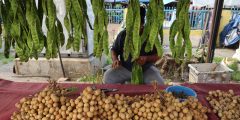
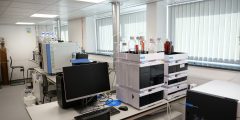

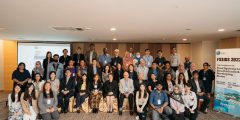

Recent Comments